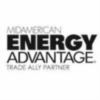
We spend lots of time indoors. As a matter of fact, the Environmental Protection Agency (EPA) has determined being within a building accounts for 90% of our time. Having said that, the EPA also has found your indoor air can be three to five times dirtier than outside your home.
That’s because our houses are firmly sealed to enhance energy efficiency. While this is fantastic for your utility costs, it’s not so great if you’re a part of the 40% of the population with respiratory allergies.
When outdoor ventilation is limited, pollutants including dust and volatile organic compounds (VOCs) may get stuck. As a result, these pollutants could worsen your allergies.
You can boost your indoor air quality with clean air and usual cleaning and vacuuming. But if you’re still having issues with symptoms when you’re at home, an air purifier might be able to provide assistance.
While it can’t eliminate pollutants that have settled on your couch or carpet, it might help freshen the air circulating across your home.
And air purification has also been scientifically confirmed to help lessen some allergic symptoms, according to the American College of Allergy, Asthma and Immunology. It could also be useful if you or a family member has lung trouble, including emphysema or COPD.
There are two models, a portable air purifier or a whole-home air purifier. We’ll examine the distinctions so you can learn what’s correct for your home.
Whole-House Air Purifier vs. Portable Air Purifiers
A portable air purifier is for a lone room. A whole-house air purifier works with your heating and cooling system to purify your entire home. Some kinds can clean on their own when your HVAC unit isn’t on.
What’s the Best Air Purifier for Allergies?
Seek an option with a High Efficiency Particulate Air (HEPA) filter. HEPA filters are used in hospitals and provide the most comprehensive filtration you can get, as they catch 99.97% of particles in the air.
HEPA filters are even more beneficial when combined with an ultraviolet (UV) germicidal light. This dynamic blend can eliminate dust, dander, pollen and mold, all of which are common allergens. For the greatest in air purification, evaluate equipment that also has a carbon-based filter to eliminate household smells.
Avoid buying an air purifier that generates ozone, which is the primary element in smog. The EPA warns ozone could aggravate respiratory troubles, even when discharged at low settings.
The Allergy and Asthma Foundation of America has created a listing of questions to think over when purchasing an air purifier.
- What can this purifier take out from the air? What doesn’t it remove?
- What’s its clean air delivery rate? (A better figure means air will be freshened more rapidly.)
- How regularly does the filter or UV bulb need to be replaced]? Can I finish that on my own?
- How much do spare filters or bulbs cost?
How to Reduce Seasonal Allergy Symptoms
Want to get the {top|most excellent|best] results from your new air purification system? The Mayo Clinic suggests doing other steps to decrease your exposure to seasonal allergy triggers.
- Stay in your home and keep windows and doors sealed when pollen counts are high.
- Have someone else mow the lawn or pull weeds, since these jobs can trigger symptoms. If you have to do these jobs alone, consider trying a pollen mask. You should also bathe without delay and change your clothes once you’re finished.
- Avoid drying laundry outside.
- Run the AC while indoors or while driving. Consider installing a high efficiency air filter in your home’s HVAC unit.
- Balance your residence’s humidity percentage with a whole-house dehumidifier.
- Hardwood, tile or linoleum are the ideal flooring kinds for lowering indoor allergens. If your house has carpet, add a HEPA filter on your vacuum cleaner.
Let Our Pros Take Care of Your Indoor Air Quality Requirements
Want to take the next step with getting a whole-house air purifier? Give our experts a call at 309-517-7511 or contact us online to schedule an appointment. We’ll help you locate the best unit for your house and budget.




